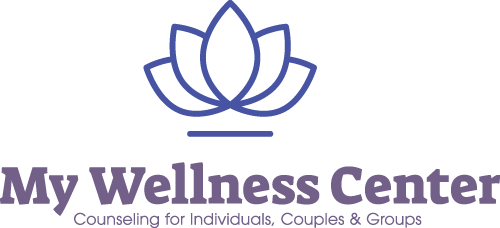Postpartum depression is a common affliction that affects nearly one in seven people after giving birth, research shows. And even more new parents experience the “baby blues,” a period in which the huge hormonal shifts and life changes inside of a couple weeks can create intense sadness and mood swings despite the joys of having a new baby.
Some cases of postpartum depression even turn tragic. The Alexis Joy Foundation, which we’ll discuss in more detail later on, was founded after a new mom fell into such a deep depression, she committed suicide. Heartbroken and determined to never let anyone else experience a similar fate, her husband started the Alex Joy Foundation in her honor—and to help new moms experiencing similar distress.
We see individuals with postpartum depression every day in our office. So, if you’re experiencing it, you’re not alone. Help is available, and following tips for postpartum depression self care can help you feel better!
Read on to learn more, or skip to the section you need:
Table of Contents
Why Postpartum Depression Occurs
When Does Postpartum Depression Occur?
Common Postpartum Depression Symptoms
6 Tips Postpartum Depression Self Care
Why Postpartum Depression Occurs
According to the Mayo Clinic, the three most common causes of postpartum depression include:
- Genetics – If you have a family history of postpartum depression, you’re more likely to experience it yourself.
- Physical (Hormonal) Changes – After giving birth, you’ll undergo a steep drop in estrogen and progesterone, and you might also see a decrease in hormones produced by your thyroid gland. Combined, these hormonal shifts can contribute to postpartum depression. Similarly, men also experience hormonal shifts after childbirth, including drops in testosterone and estradiol—which are responsible for mood, energy levels, and sex drive.
- Emotional Issues – Lack of sleep and general feelings of being overwhelmed can lead to a long list of additional problems, all of which can lead to postpartum depression. Accepting and managing emotions is a key part of overcoming postpartum depression.
Of course, other risk factors, like lack of a support system or issues with your own parents, could also increase your chances of experiencing postpartum depression.

In general, though, remember this: Becoming a parent is a transformative period of time. One day, you can hit the bars, take a trip to your favorite amusement park, or call up a friend for a spontaneous trip to the coffee shop. The next day, you’re struggling to get your baby to latch in between changing diapers.
It’s a big transition, and many of the stressors you’ll experience will be new. Consequently, it’s normal for you to feel upset or depressed.
Understanding postpartum depression on a deeper level can help you recover, especially as you begin to seek treatment!
When Does Postpartum Depression Occur?
Postpartum depression usually occurs within the first 18 months of the baby’s life, but we see some patients who experience it even after that point.
Postpartum depression is sometimes confused with the “baby blues,” but the baby blues are generally shorter-lived and feature milder symptoms. In many cases, the baby blues cause irritability, fatigue, and safeness, and generally appear for a few hours each day until about two weeks after delivery—and then it could disappear entirely
In general, postpartum depression can last significantly longer. In some cases, postpartum depression can last for months or even years, according to Medical News Today.
Additionally, postpartum depression symptoms are much more severe compared to the baby blues, which can make it more difficult to overcome—and which makes following tips for postpartum depression self care even more important.
Read our next section to learn more!
Common Postpartum Depression Symptoms
Postpartum depression can strike in a number of ways, and our patients often discuss a wide range of symptoms, including:
- A general sense of hopelessness, which is common in other forms of depression as well. Hopelessness can make you feel like nothing matters, especially for events in the future.
- A traumatic birth that has been difficult to emotionally process or physically recover from. Childbirth is intense, and some women (and even fathers) need extra time to overcome its stress and physical toll.
- Feelings of being overwhelmed, especially when you’re near your newborn. Becoming a parent to a newborn is a difficult transition, so it’s perfectly normal to feel overwhelmed. Learning to manage that emotion is important, however!
- A loss of appetite. The stress and anxiety of having a new baby can dull your hunger, which could lead to weight loss or even malnutrition for you and your baby (if you’re breastfeeding).
- Overeating, especially when dealing with the stress of parenthood. If you use food as a coping mechanism for stress, you may experience unhealthy weight gain after your baby is born.
- Less interest in your favorite activities. As with typical depression, postpartum depression can reduce interest in your favorite activities. This can be especially alarming when you discover that the activities that once brought you joy are now ineffective at warding off your depression.
- Feelings of aggression. Feelings of aggression are especially common in men who are suffering from postpartum depression, but women can experience it as well.
- Feeling generally exhausted, including if you stay up during the night to check on your baby.
- Trouble bonding with your baby. This can be fairly common among parents with postpartum depression.
If you’re experiencing any combination of these symptoms after giving birth, you may be experiencing postpartum depression. For support, contact us or read on to learn about our best tips for self care during postpartum depression.
6 Tips For Postpartum Depression Self Care
Here are some of the best ways to care for yourself while managing postpartum depression—strategies we often discuss with our patients:
1. Engage with your support system. Isolation can compound the symptoms of postpartum depression, so it’s important to engage with your partner, family, and friends on a regular basis.
Some new parents will also invite a friend or family member to visit and help take care of the house or the baby, both of which can be helpful in alleviating some of the stress and pressure you feel.
If you feel like you lack an immediate support system, there are other options:
- MAYA Organization – Our sister organization was designed to empower marginalized birthing people and birth workers through a network of mentors, doulas, and therapists.
- Alexis Joy Foundation – This Pittsburgh organization, as we mentioned earlier, was founded to support women dealing with postpartum depression.
Whatever you do, find something that feels good for you and that you look forward to. If necessary, you can even schedule time on the calendar each week to get lunch with a friend or visit your mom for an afternoon.
2. Nourish your body. Proper nutrition is critical for good health, and it’s especially so for new birth parents who are breastfeeding (as this nutrition carries over into breastmilk).
For new moms who are breastfeeding, they should eat an extra 200-400 calories per day (just like when you were pregnant), as breastfeeding can burn hundreds of calories on a daily basis.
We generally recommend increasing your intake of green, leafy vegetables as a starting point. If you have trouble getting so many vegetables in your diet, consider making smoothies every day to help you get that extra burst of vitamins and minerals into your diet.
Of course, other resources are also available, including:
- Nutritionists – A nutritionist who’s experienced working with new parents can help you build a meal plan that’s both healthy and delicious, making you more likely to stick with it even during your hardest days. If you need help finding a nutritionist, let us know!
- Lactation Consultants – Pittsburgh has a couple of great resources for moms who need extra support feeding their babies. That includes the Le Leche League and the Mid-Atlantic Mothers’ Milk Bank.
If you took a prenatal vitamin during pregnancy, continue to do so. Your body is still undergoing plenty of changes, and the extra burst of nutrients is good for you and the breastmilk you pass along to the baby.
3. Focus on hygiene. Hygiene is critical to health and wellness, but it can also boost your confidence and overall mood.
Unfortunately, personal hygiene is often the first thing to go out the window when postpartum depression strikes—and you may even simply find it difficult to squeeze a shower into a busy day of work, household responsibilities, parenting.
To strike back, be sure to take the time to shower and brush your teeth, even if that means keeping your baby in a crib outside of the shower stall while you’re getting cleaned up.
We also know some new moms who feel better simply putting on their makeup in the morning, even if they’re not going to see anyone; the act of “putting themselves together” can provide an important confidence boost.
Finally, if you had a hygiene routine before your baby arrived, try to stick to it after the baby is born. This will help you retain a sense of normalcy and control in your life, and regularly pampering yourself will lift your mood.

4. Get outside, especially during the warm months. Time in the sun is crucial for developing Vitamin D, so lather up some sunscreen and head out into the yard or, if you feel safe with the baby, walk to the park or sit on a nearby bench.
Getting outdoors can also help you clear your head, breathe in some fresh air, and give you an opportunity to squeeze in some exercise.
Plus, the fresh air and exposure to the outdoors is good for your baby’s health and development as well!
If it’s cold outside, you and your baby could still benefit from getting out of the house. Your newborn lacks substantial body fat, so they’re more likely to lose body heat—but they can still go out if you dress them properly. In fact, your newborn can manage temperatures down to -15°F, but be sure to bundle them up, don’t stay out too long, and check the windchill beforehand.
5. Go to therapy. If you’re struggling with postpartum depression, seek therapy as soon as possible. While postpartum depression is common across all demographics, you may be more likely to experience it if you:
- Did not have a good relationship with your parents while growing up.
- Experienced early attachment trauma as a child.
- Were in foster care, were adopted, or experienced similar circumstances.
Therapy can help you discuss your trauma and problems, and then find solutions to moving forward as a loving, engaged parent.
Contact us to schedule an appointment with a Pittsburgh postpartum depression therapist!
6. Take your medication. If your doctor has prescribed medication to manage postpartum depression—or for anything else, be sure to follow their instructions on dosage and when you take it every day.
Many of today’s most popular antidepressants, like Zoloft, are generally safe to take throughout your pregnancy and even when breastfeeding, as very little of the chemicals from the medication passes through to the baby.
If you’re unsure, talk to your doctor and pediatrician about the right choice for you and your baby. If your medication could potentially harm the baby through breastmilk, consider switching to formula or transitioning onto a new medication with your doctor’s supervision.
Book Your Postpartum Depression Counseling Session
If you need additional support in managing postpartum depression, contact us! We have extensive experience in postpartum depression counseling, and our team is ready to lend support! You don’t have to navigate postpartum alone.

